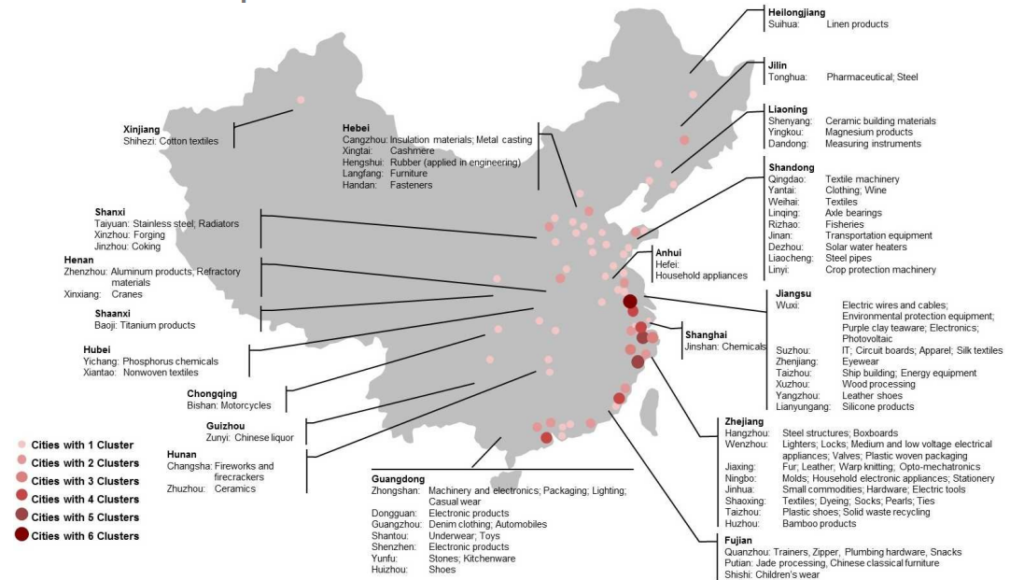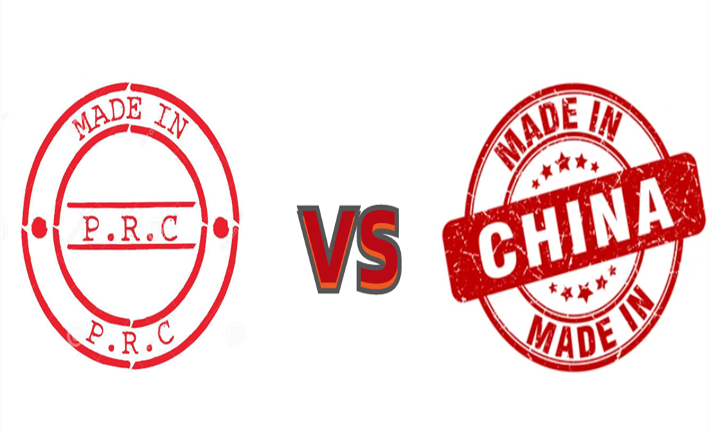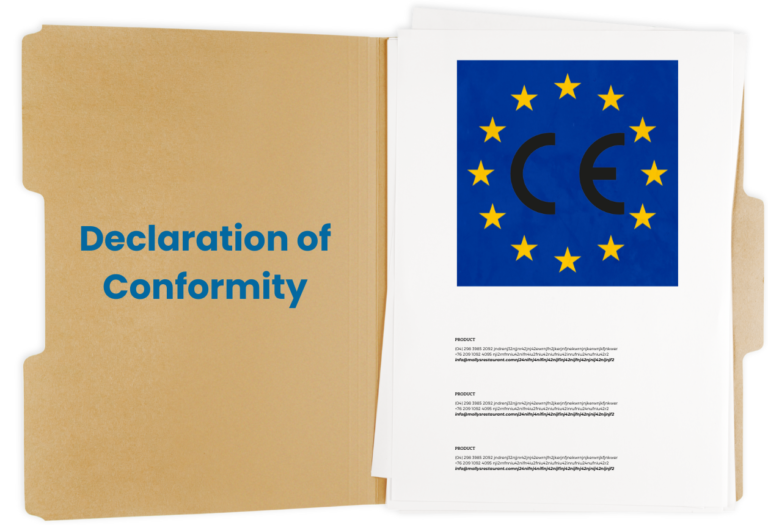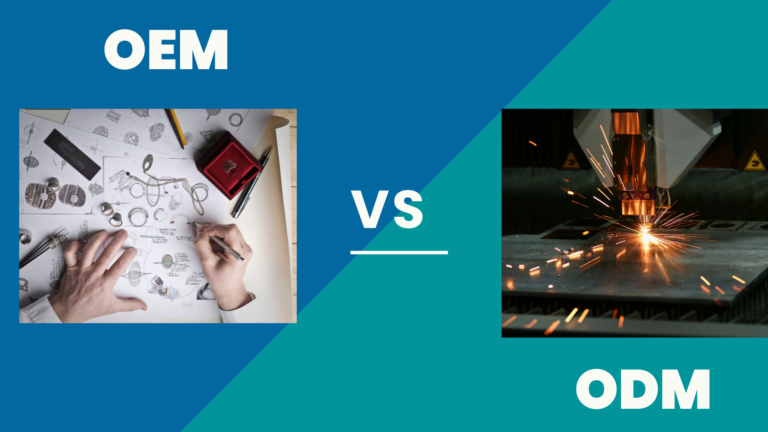Have you seen products labelled “Made in PRC” and wondered what it means? Some may have the idea that it means that the product originates from China. Others may not be familiar with it [1]. However, the label is about more than just the product’s country of origin. Let me explain the meaning behind the label and what it means for consumers.
The “Made in PRC” label indicates that the product was manufactured in the People’s Republic of China. PRC is the official abbreviation for China, and this label shows that a factory in China produced the product. It is similar to the “Made in China” label but more specifically mentions the country’s official name.
The “Made in PRC” label (made in the People’s Republic of China label) often appears on products made in China. When a product has “Made in PRC” on the label, it means that it comes from China.
So what is the difference between ‘Made in PRC’ vs. ‘Made in China’? “Made in China” is just a different label for the same. The label does not imply any difference in the product itself or its quality and reliability compared to items labeled “Made in China.”
It’s merely a matter of using different terminology. ” Made in PRC” often better complies with certain countries’ labelling regulations.
Which products sell under “Made in PRC”?
The People’s Republic of China (PRC) is the official name for mainland China. So, all kinds of products can be labelled under this term.
Some examples of products that sell under the “Made in PRC” label include Consumer electronics, Apparel and textiles, Household goods, Toys and sporting goods, Machinery and industrial equipment, and many more
The “Made in PRC” label indicates that the product was manufactured or assembled in mainland China. PRC is different from the Chinese perspective of Greater China. In the eyes of the Chinese, Greater China consists of China Mainland as well as Taiwan, Hongkong and Macao. The label doesn’t say anything about the quality level of the product. The quality and standards of “Made in PRC” products can vary significantly, depending on the manufacturer.
Why source products from China?
Why would we buy and source products from China in 2024?
China is still a top choice for manufacturing because it has many advantages. China has a large number of workers who are willing to work for lower wages compared to other countries. China’s workers also have a lot of experience and skills in manufacturing. Additionally, China has excellent infrastructure like transportation and energy networks that support efficient production and shipping. This makes many products from China still attractive to procure.
What are the advantages of sourcing “Made in PRC” products?
The main benefits of sourcing from China include cheap labor costs, a highly skilled workforce with deep manufacturing know-how, hardworking employees, and advanced infrastructure. China has built up a massive manufacturing base with specialized clusters and economies of scale, allowing for low-cost production.

Overall, sourcing “Made in China” products can provide companies with a cost-effective and reliable source of high-quality products.
Which goods are best suitable to import from China?
China is a top producer of a wide variety of goods, so it makes sense to source many different products from China. Some of the key products where China has particular advantages include electronics, machinery, consumer items, toys, textiles, and industrial components.
China’s manufacturing expertise, large scale production, and efficient infrastructure make it a good choice for importing these types of goods.
Conclusion about “Made in PRC”
The “Made in PRC” label indicates that a product was manufactured in the People’s Republic of China, which is an alternative way of saying “Made in China.”
By understanding the advantages and potential pitfalls of sourcing from China, businesses can make informed decisions that make use of the country’s competitive manufacturing capabilities. “Made in PRC” can represent a cost-effective and reliable source of goods across a wide range of product categories.





